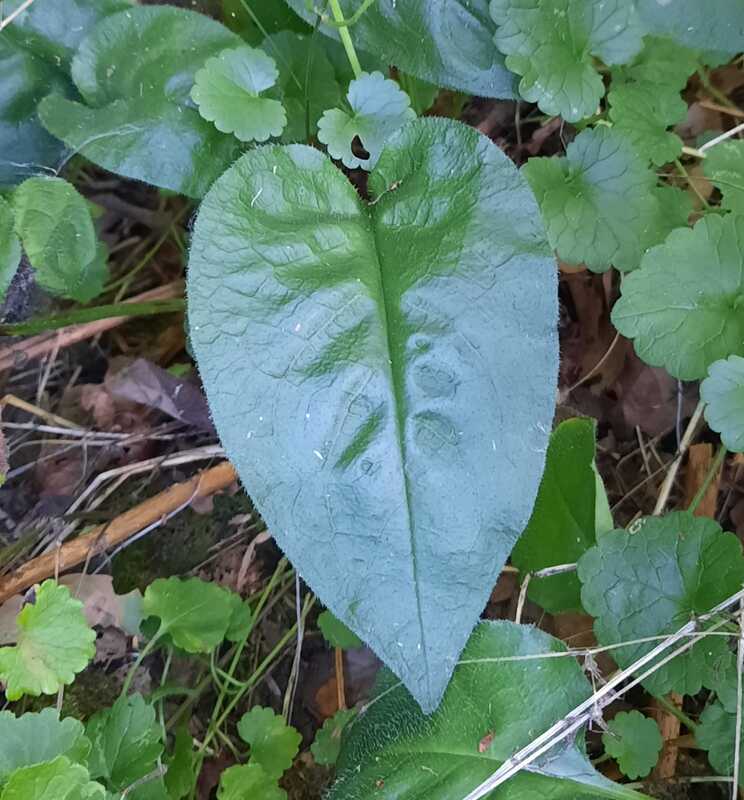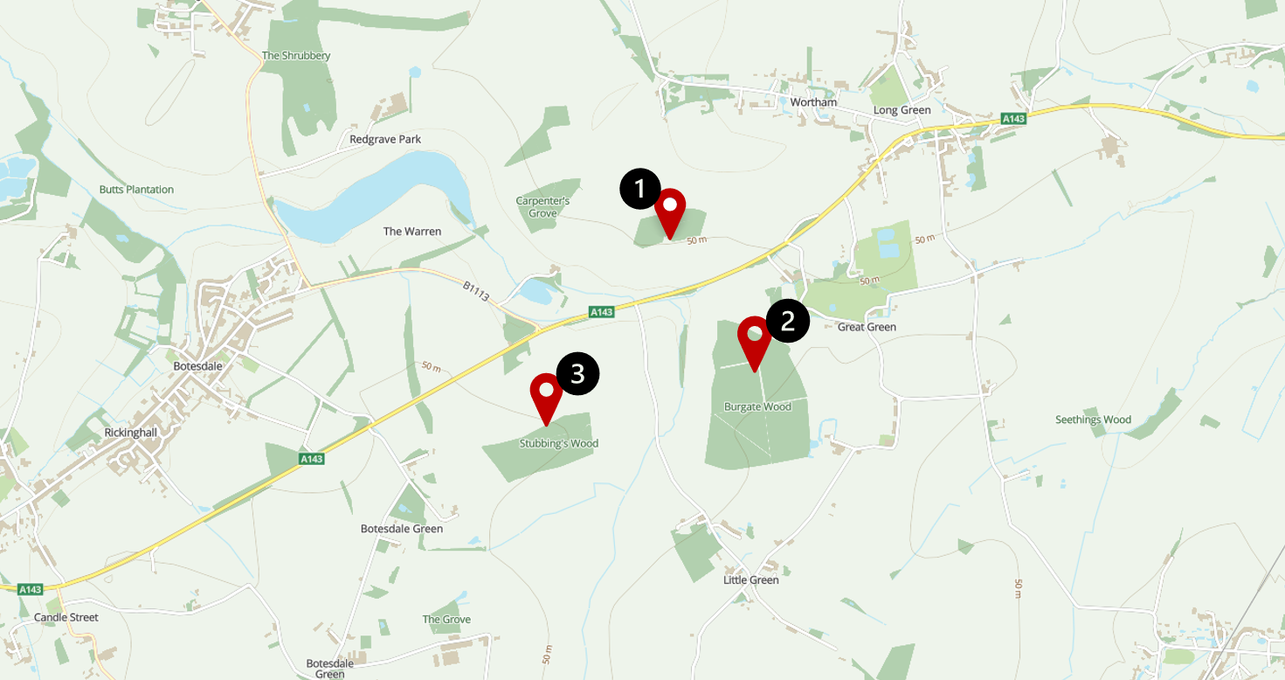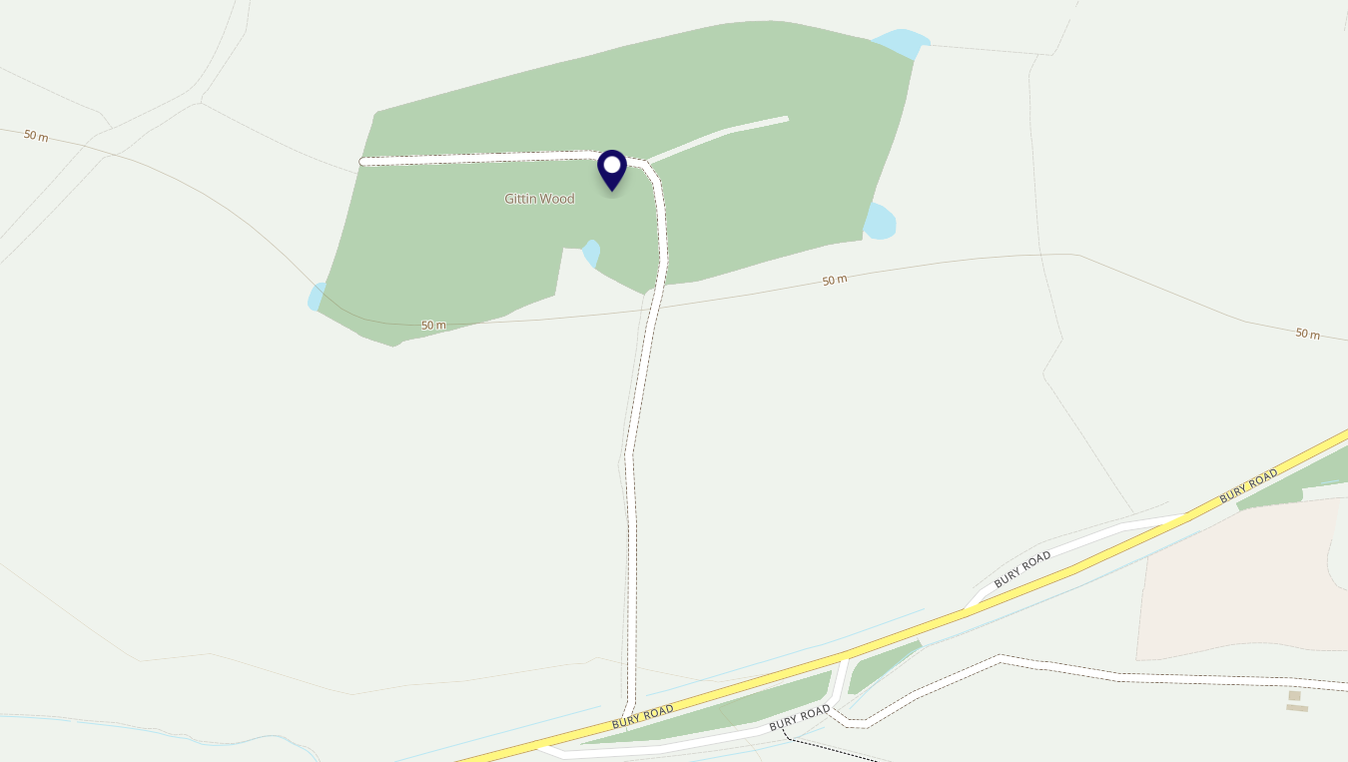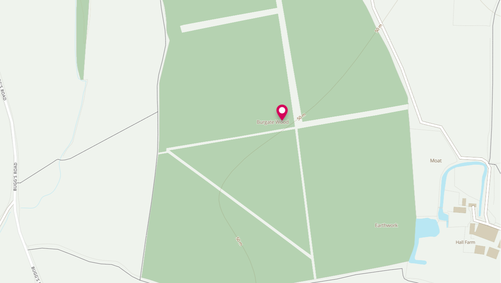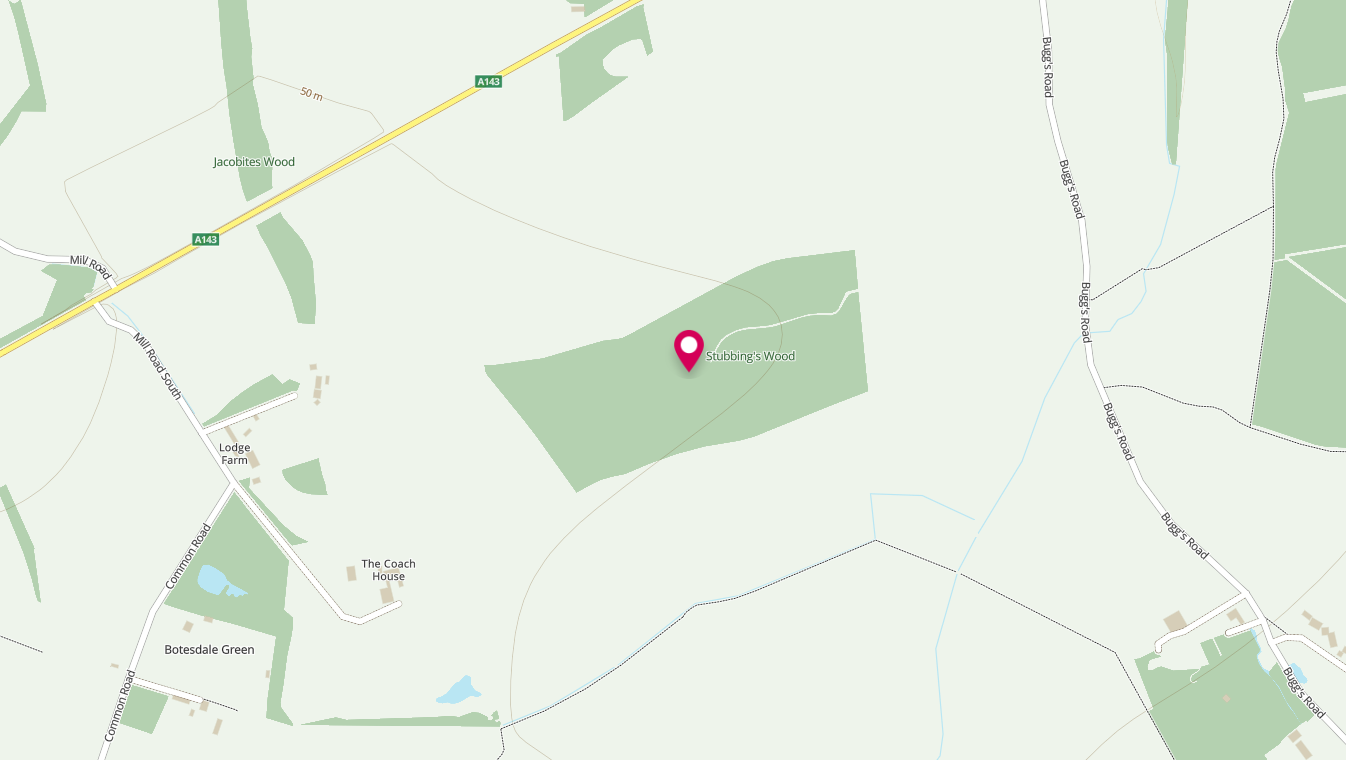|
SUFFOLK LUNGWORT PROJECT
|
Our plant conservation project that aims to conserve the native population of Pulmonaria Obscura the Suffolk Lungwort in Suffolk (UK). We set out to propagate this endangered plant and work with landowners to establish new populations in suitable woodland within the region.
|
OUR PROJECT
The Suffolk Lungwort (Pulmonaria obscura) was first described by CJ Ashfield in 1842 and survives in 3 woodlands in North Suffolk. In the Spring of 2023, we assessed the conservation status of the rare native plants of the eastern region and were alerted to the plight of this species.
|
DISCOVERY BY C J ASHFIELD
The bright green leaved and unspotted Pulmonaria, in the shaded interior of Burgate Wood, caused some consternation after C J Ashfield discovered it and it was initially believed to be a variant of Pulmonaria officinalis. A further population was discovered in Stubbings Wood (Wortham) in 1885, in south Suffolk at Millfield Wood in Polstead in 1949. Finally a further discovery was made at Gittins Wood (Wortham) in 1993. Regrettably, the confusion regarding its taxonomic identity, followed by the assumption that it must have been introduced, caused some apathy amongst the conservation community and when it was finally accepted as a rare native species, the Polstead population had already been lost.
|
|
PRIORITY SPECIES
The current situation of this species is best described as precarious as, despite being listed as a priority species within the UK,
Pulmonaria obscura has not been afforded legal protection and its home within the three private woodlands is far from secure. The once thriving Burgate population is now confined to a small patch, growing in dense shade under bracken. Also due to the ravages of Ash die back, the remaining two woods have been granted a felling licence, with the prospect of Black Walnut being replanted as a climate experiment by the Forestry Commission. |
|
|
SPECIES RECOVERY PROGRAMME CAPITAL GRANT
Our Suffolk Lungwort Project has been awarded a Species Recovery Programme Capital Grant by Natural England.
Thanks to the support of Natural England, we successfully bid for a Species Recovery Programme Grant and have started propagating plants, with the aim of establishing populations within suitable woodland sites throughout Norfolk and Suffolk. |

